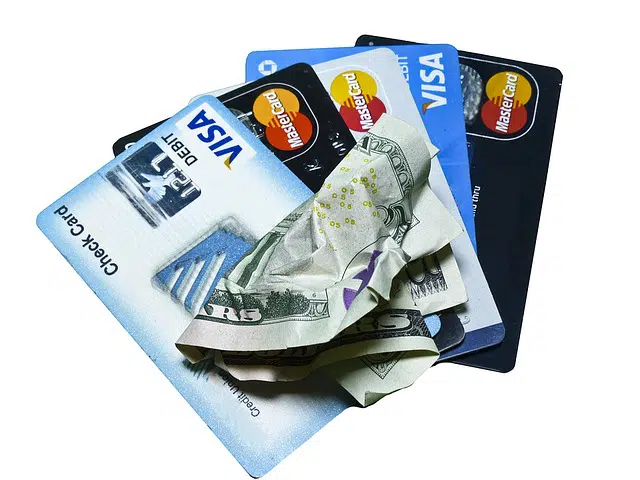
What happens to your credit card debt when you die?
Recently we answered a question in our weekly Ask an Attorney that asked about the transfer of debt after the passing of a loved one. We wanted to expound upon that theme and offer helpful information about the handling of credit card debt after one’s passing.
Unfortunately, credit card debt does not disappear when one passes away. However, the debt is settled through the estate planning process. The best way to ensure that your credit card debt is properly accounted for and handled the right way after you’re gone is for your Executor to hire an experienced estate planning attorney.
Generally, whatever debt is left over is handled by the executor of the deceased’s will. Before heirs may assume ownership of the assets and accounts, the debts must be settled with whatever is available. Secured debt must be settled first, and then administrative and legal fees must be paid, followed by unsecured debt (which includes credit debt). Importantly, in Virginia, a surviving spouse and minor children are permitted certain allowances out of the estate before credit card and other unsecured debts are paid. These allowances must be filed with the court but ensure that those dependent on the deceased person receive at least a minimal amount of support from the deceased person’s assets.
Creditors Can’t Take Everything
Importantly, not all assets are available to creditors. For example, a life insurance policy is not subject to credit card debt unless the insurance proceeds are paid to the estate. It is essential to periodically review your life insurance beneficiary designations to ensure your life insurance proceeds go directly to your family, business, or other intended recipient and not to your estate. Additionally, creditors must submit claims against the estate by an established deadline.
Relatives will not typically be required to pay a deceased family member’s credit card, unless –
- The debt is co-signed
- The debt includes jointly-owned property
- State law requires the debt to be paid (e.g. medical expenses)
- The debt belongs to a spouse and you live in a community property state
Distressed Sale
If there are not sufficient cash assets to pay all of the deceased person’s credit card debt, the deceased person’s assets must be sold in order to pay those creditors. Often this is a “distressed” sale and the assets may need to be sold for less than their value in order to raise funds for paying debts.
This process can be quite complex and going through it without an attorney can be daunting, especially because so often there is an emotional loss to deal with too. We strongly encourage you to meet with an experienced Virginia estate attorney to be sure everything is in place to decrease the potential for unforeseen complications and surprises.
If you or a loved one needs to establish a will, please schedule a consultation with our experienced estate planning attorneys today!
Call 757-453-7744 or fill out this short form to get started!
Visit these links for related information
Wills, Trust, Estates, and the Probate Process
Five Common Estate Planning Mistakes
Digital Assets and Estate Planning
 N/a
N/a